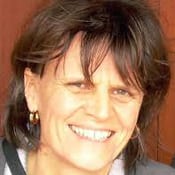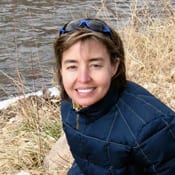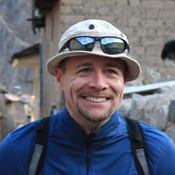Welcome to the Resources Section of the 2016 EcoSattva Training
[members_not_logged_in]
This page is for the 2016 version of the EcoSattva Training. If you are already registered for the 2016 EcoSattva Training, log in here:
[members_login_form /]
[/members_not_logged_in]
[members_access role=”est17_subscriber”]
Note: You are registered for the 2017 EcoSattva Training.
Access course materials here.
[/members_access]
[members_access role=”est16_subscriber” operator=”!”]
We currently have no registration for you for this version of the EcoSattva Training (2016).
- Learn more about and register for the 2016 EcoSattva Training
- Learn more about and register for the (all-new) 2017 EcoSattva Training
[/members_access]
[members_access role=”est16_subscriber”]
We hope that provides all that you need to fully participate in the training. That said, if you have questions, you might check out our FAQ.
Updates on the Course
- While this course is still available, we encourage you to join us instead this fall for the all new EcoSattva Training course.
- Before commenting or emailing with questions, please check out our FAQ. Your answer might be waiting for you there!
[expand title=”Session Format” tag=”h3″ id=”sessionformat”]Sessions follow the same format and consist of the following 3 components:
- Background material (or “homework”) to help you get the most out of the session event
- The core of each session is the live or recorded event. We recommend that you schedule at 2 to 3 hours (if you want to include breaks), for a session (see ideas for time and structure below). The session generally includes
- Opening, short gathering of attention, presentations from the featured leader,
- One or more inquiry questions for you to explore individually or in break out dyads or triads within your group. Note that because of platform limitations, the opening and closing sessions will not include online breakout groups. (We are sad about this too!)
- “Harvest” (or question and answer) period where members of the community converse with the presenters,
- Science and Policy update from Lou Leonard, and finally,
- Closing including what’s next and the invitation to offer generosity.
- Follow up materials provided by the course organizers and featured speakers should you want to go deeper with what was presented.
Structuring your in-person or online meetings
Because the recordings range from 1:15 to 2:00, it can be challenging to fit both listening, breakout groups and discussion into a 2 or 2½ hour meeting. Here are some suggestions:
- Ahead of the meeting, participants should review the session homework.
- If you have quite a lot of time for your meeting, you might be able to listen to the full session recording together and include both breakout groups and discussion.
- Alternatively you might agree that participants listen to the recorded session in full ahead of the meeting and come ready to practice with the breakout inquiries and discuss.
- As a compromise between the two, , you might you might agree that participants listen to the first hour of the recorded session ahead of the meeting. You’ll listen to the second hour together and follow up with practice with the breakout inquiries and discuss.
- After the meeting, participants can on their own pursue the follow-up resources.
[/expand]
[expand title=”Engagement Practice” tag=”h3″]
We encourage you to take some time at the outset of the series to identify an opportunity to embody what you are experiencing in the sessions and with the materials. Think of this as the “lab work” learning environment. Choose something where
- you anticipate some or even a lot of discomfort and yet you feel called to move in this direction and
- where the action itself brings you into community.
Don’t let the idea that you don’t know enough or somehow are not enough to move forward. It’s all practice. The Dharma and this community are here to support you. We offer a few ideas here but the truest answer will come from some combination of your heart’s longing, a sense of need that draws you and then whatever your skills, talents, interests, experience and networks you might have.
- Join with others in pressing local or regional government to adopt strong emissions reduction and resilience policies.
- Start a community solar project in your neighborhood or organize efforts to bring solar to your schools, businesses and government facilities.
- Perhaps you want to help your sangha regularly integrate awareness of ecological and other social issues and practicing responding together to local issues.
- You might reach out to the local food justice organizers to see how you and others in your community can provide support.
- If you’re already active on ecological or social issues, choose something that will build resources for you individually or for the group you’re working with. Take steps to build alliances with groups working on intersecting issues.
- If you’re one of the many over-committed activists (you know who you are!), commit to taking time in silence or in nature every day, just for yourself or for your group. See what it’s like to practice inner “no-ing.” Alternatively, commit to allowing these teachings re-frame your activism giving it more heart, wisdom, a longer view, resilience or steadiness.
By taking up an area of practice that feels uncomfortable, you’ll get much more out of what is offered here and truly develop as an EcoSattva.
[/expand]
[expand title=”Hosts for the Course” tag=”h3″]

Our host Dharma teacher for the series, Thanissara Mary Weinberg, was trained in the Forest School of Ajahn Chah, is a Dharma teacher and activist. She is co-founder of Dharmagiri on the border of Lesotho and South Africa, and Chattanooga Insight. She has taught meditation retreats for 25 years, and has an MA in Mindfulness Psychotherapy Practice. Thanissara is author of The Heart of the Bitter Almond Hedge Sutra, co-author, with Kittisaro, of Listening to the Heart: A Contemplative Journey to Engaged Buddhism, and Time To Stand Up, a book on Buddhism and Climate Action.

Kristin is co-founder and director of One Earth Sangha. In her commitment to collective awakening, Kristin is currently being trained in Spirit Rock‘s Community Dharma Leaders program, serves on the board of the Insight Meditation Community of Washington, DC and co-founded White Awake whose mission is to develop awareness of race dynamics among white people engaged in spiritual communities and progressive causes. She has worked as an independent consultant and staff member at several environmental organizations in Washington, DC.

Lou is co-founder of One Earth Sangha, an environmental lawyer, a teacher and the leader of the climate change program at World Wildlife Fund which he joined in 2008 after a year on the staff of the Obama for America campaign. He also serves on the board of directors of the US Climate Action Network. Lou came to the Dharma as a response to the challenges of working on climate issues and practices within the Insight Meditation Community in Washington.
[/expand]
Session Resources
Each session below is linked to resources for that session, once it is available.
PART 1: Resourcing Ourselves for the Journey
LIVE Session One: Opening and Responding to the Way Things Are
[localize_time tz=”PDT” fmt=”l, F j, Y g:i a T”]Sunday, October 16, 2016 9:30 am[/localize_time], 2 hours
Ground our practice in sacred refuge and begin with ourselves: refuge in our own, individual Buddha-nature.
Session Leaders: Ven. Bhikkhu Bodhi, Kristin Barker, Lou Leonard
The video recording of this session will be available to registered participants within 48 hours.
Recorded Session Two: Refuge in Sangha
Reflect on what it means, in the face of climate change, to take refuge in sangha and how we can actively cultivate it.
Session Leaders: Joanna Macy and Adam Lobel
PART 2: Hindrances and Potential on the EcoSattva Path
Session Three: A Loving, Steady, Confrontation with Hindrances at the Individual Level
Learn to recognize and skillfully confront, in ourselves and others, the hindrances to effective engagement.
Session Leaders: Guhyapati and Alex Swain from the ecodharma centre in Spain
Session Four: A Loving Steady, Confrontation with Hindrances at the Collective Level
Examine the shared roots of and shared remedies for systems of exploitation.
Session Leaders: DaRa Williams, Thanissara and Dawn Haney
Resource materials will be available on Wednesday, October 26.
Session Five: Emergence Potential – “The Sickness is Medicine.”
Open to the potential of climate change to heal our delusions, setting us in Right Relationship with all other beings.
Session Leaders: rev angel Kyodo Williams and Tiokasin Ghosthorse
Bonus: Integrating the series: Kristin Barker interviews Dharma teacher, author and activist, Thanissara.
PART 3: Walking Practice
OPTIONAL
Session Six: Forms of Outer Response – Buddhist/Mindful Engagement on the Climate Crisis
Explore explicit forms of engagement. Get updates from diverse movements, share our work and discover partners.
This session features a panel discussion moderated by Eleanor Hancock, director of White Awake.
OPTIONAL
Session Seven: Integrating Outer Practice and the Dharma
Actively connect our work on ecological healing with practice, seeing every moment as potential for awakening.
Session Leaders: Catherine McGee and Lou Leonard
Note that this session’s science and policy segment has not been updated from 2015
Session eight: Continuing the Journey Together
Notice what has emerged, commit to answering the call, set intentions for going forth and dedicate the merits.
Session Leader: Joanna Macy
Post-Course
LIVE Harvest Session: Harvest and Q&A
[localize_time tz=”PST” fmt=”l, F j, Y g:i a T”]Sunday, December 11, 2016 9:30 am[/localize_time], 2 hours
We’ll hear from you the Sangha about your reflections and explore opportunities for continuing together.
Session Leaders: Kristin Barker and Lou Leonard with special guest, Thanissra
The video recording of this session will be available to registered participants within 48 hours.
[/members_access]
